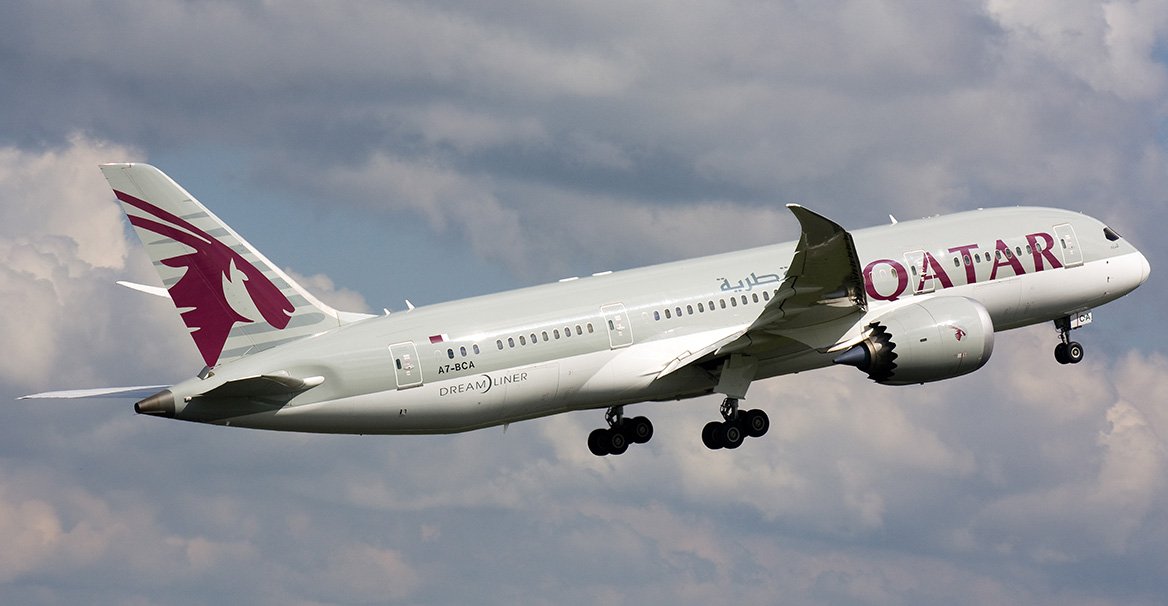Qatar’s losses
April 27, 2018 | Expert Insights

Qatar Airways, the state-owned flag carrier of Qatar, has announced that it had made a “substantial” loss in the past financial year. The company stated that this was due to the diplomatic impasse between Qatar and Saudi Arabia-led bloc of nations.
The company has not revealed the exact amount in losses it has incurred.
Background
The Gulf region is in the midst of one of its worst diplomatic crises. Tensions have long existed between Qatar and its neighbors. Saudi Arabia has especially been irked by the seemingly friendly equation shared by Qatar and Iran.
Saudi Arabia, Bahrain, the United Arab Emirates and Egypt cut all ties with Qatar in June 2017. The countries alleged that Qatar sponsors terrorist outfits – a charge that Qatar has denied. As a result of the impasse, Qatar’s sea links, air links and road links have been cut off.
The Saudi-bloc has put forth a set of six principles for Qatar to comply with. This includes making a commitment to fight terrorism. Qatar, has not directly responded to these principles but it has said that it was willing to enter negotiations. Qatar’s Emir, Sheikh Tamim bin Hamad Al Thani has noted that any discussions should respect Qatar’s sovereignty. It has also said that no negotiations can take place unless the blockade is lifted. Neither party has set a deadline to enter any form of negotiations.
In 2017, Qatar filed a legal complaint with the World Trade Organization challenging the trade boycott initiated by Saudi Arabia, Bahrain and United Arab Emirates. It has however struggled to ensure that its economy does not collapse. According to Moody’s, Qatar used $38.5 billion of its reserve to support the economy since the impasse. Turkey and Iran have become Qatar’s main partners in trade after the blockade was imposed. The region’s exports of oil and gas have continued without any interruptions.
Qatar airways
Qatar Airways, is the state-owned flag carrier of Qatar. Founded in 1993, the airline operates a hub-and-spoke network, linking over 150 international destinations across Africa, Central Asia, Europe, Far East, South Asia, Middle East, North America, South America and Oceania from its base at Hamad International Airport, using a fleet of more than 180 aircraft. Qatar Airways Group employs more than 40,000 people, of whom 24,000 work directly for Qatar Airways.
Analysis
Qatar Airways CEO Akbar al-Baker has revealed that the company had incurred substantial losses in the past financial years. The CEO noted that this was because of the impasse that has severely affected the nation’s revenue streams.
As a direct result of the blockade, the organization could not fly to 18 cities across the world. These cities are primarily located in Saudi Arabia, United Arab Emirates, Egypt and Bahrain. "We have increased our operating costs," al-Baker said at the Eurasia Airshow in Antalya, Turkey, on Wednesday, Reuters reported. “We had to also take a hit on revenues, so we don't think that our results for the last financial year will be very good. I don't want to say the size of the loss but it was substantial.”
A few months ago he spoke about the possible losses to the company but noted that the company would only look to the government in case of an emergency for funds. When asked if the carrier would have to resort to calling its state owners for extra funds should the blockade continue, he said "Not for the foreseeable future, but if it continues long term our shareholders will have to put additional equity into the company.”
The airline will need to find new streams of financing to survive since it has no access to the equivalent of US Chapter 11 bankruptcy protection. Despite the fact that the group is going to report losses, the airlines is also drawing up plans for further expansion. Akbar al-Baker has announced the airline carrier has “aggressive expansion plans” and 16 new destinations will be added for the year 2018-2019.
As America has failed to bring the two conflicting factions to the negotiating table, Qatar has looked elsewhere to solve its problems. Recently, Qatari Energy and Industry Minister Mohammed bin Saleh al-Sada revealed that Qatar is looking to capitalize on China’s growing demand for natural gas as well as expand its overseas investment and infrastructure. The nation is also looking to strengthen its ties to China as a result. This possibly may come as a concern to officials in Washington as one of the largest military US bases in the region is located in Qatar.
Assessment
Our assessment is that the Saudi-led blockade has begun to choke the Qatari economy. The oil-rich nation has begun liquidating its foreign assets in order to pump money back into the economy in order to keep the economy afloat. It remains to be seen if the Qatar and Saudi Arabia will be able to end the impasse and set about normalizing relations. This also presents a major concern to Washington as Qatar solidifies its ties with China in part due to the impasse. In a period of increased instability in the region, this prolonged conflict could end up creating a larger crisis if it is not addressed.
There is also a problem with regards to Indian expats in Qatar. Qatar has about 2.6 million inhabitants as of early 2017. Foreign workers amount to around 88% of the population, with Indians being the largest community numbering around 691,000. If the economy continues to suffer, what would happen to these migrant workers?








Comments